
Alon (Pascal Elbé) and Orith (Emmanuelle Devos) in THE OTHER SON (Cohen Media Group)
Though not in a profound way, The Other Son exposes the human beings beneath the rhetoric of the Israeli/Palestinian conflict to emphasize commonalities over differences. In its artificially structured set-up, two 18 year olds and their parents—one Israeli, the other Palestinian—receive surprising news.
Joseph (Jules Sitruk) is embarrassed enough that his routine medical exam for mandatory service in the Israeli army seems to be getting favored attention; his father Alon (Pascal Elbé) is a high up commander in a special unit, and the medical staff gives his doctor/mother, Orith (Emmanuelle Devos), a friendly heads-up that there’s a problem with his blood tests. Concurrently, Yassin (Medhi Dehbi) has to endure checkpoint searches just to visit the West Bank home of his parents while on a break from his pre-med studies in Paris.
The film puts a serious spin on what could have been a comic Gilbert and Sullivan farce or a melodramatic plot device: the parents are notified of the consequences of their evacuation with their newborns from a Haifa hospital during a Gulf War rocket attack in 1991—the boys were inadvertently switched at birth. The hospital immediately notifies the authorities, and the state changes the boys’ identities. How they are treated by the bureaucracy also alters, particularly by the military, all before the families can assimilate the news (or, for the Jewish family, consult a rabbi).
Director/co-writer Lorraine Lévy sets up some expected and some unexpected diversity for the two nice, mostly apolitical families. (The career soldier dad expresses the most discomfiture.) The economic class divide at first seems obvious—the Israelis live in a comfortable Tel Aviv house, but they don’t look like Jewish stereotypes—Alon is a native Sephardic Israeli and Orith is a French immigrant who easily communicates with her biological son. When Joseph sneaks off to see his biological parents’ West Bank village, he can see his biological father, Said (Khalifa Natour), as an educated, underemployed, English-speaking engineer, and Joseph fits right in around the dinner table while the father plays the oud and the mother sings. (Joseph also resembles another member of the family.)
Environment seems to have more of an impact on their lives than family, though, of course, both boys love soccer and their little sisters love playing with dolls. With his new Israeli passport, Yassin works and plays on the Tel Aviv beach that other West Bank Palestinians can’t reach, and Joseph experiences the claustrophobia of walking along the huge barbed wire-topped separation wall (covered with anti-Israeli graffiti) to feel the life he would have had there.
Beyond the initial premise, there is no major conflict or drama to make the awkward situation more strained. The implications of hereditary talents (whether as a doctor or a musician) are a bit too obvious, but how the sons begin to share each other’s lives is sensitively portrayed, and the film’s more original than the usual Romeo and Juliet personalization of the regional divide. It’s just about two families groping their way to an understanding. The focus on the two young men contemplating their changing futures is left very vague for the audience, but at least they seem hopeful.

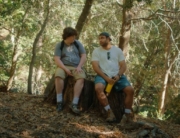
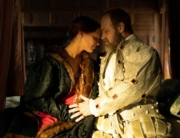
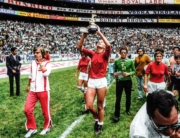
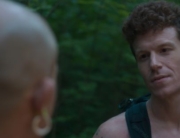
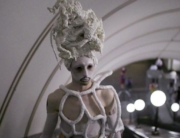
Beautiful, heartfelt movie. It seemed true to life & raised so many questions for which there are no certain answers. What shone through was the humanity of both families.Beyond the obvious diffence in their social standing the love & quality of their lives was palpable in both families & they had more in common with eachother than at first glance. A ‘must see’ for all.